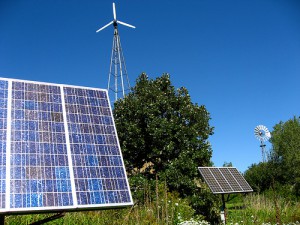Save money with these easy energy tips for your home and office!
Heating and cooling your home or office space can account for more than 50% of your utility bill.
- Purchase energy efficient heating and cooling equipment which can save you hundreds of dollars in energy costs over the life of the unit.
- Use a programmable thermostat to help regulate temperatures while away or at night — you can save 10% a year by turning your thermostat back 7–10 degrees for 8 hours a day.
- Change furnace filters regularly – clean filters keep heating and air systems working efficiently.
- Inspect air ducts and repair leaks –heated air leaked into unheated spaces can add hundreds of dollars a year to your utility bill.
- Seal air leaks around your home – check windows sills and door frames, attic entrances, fireplace doors and flues, recessed lighting, outlet and switch panels, and plumbing and utility accesses into your home.
- Add insulation to your attic – one of the most cost-effective ways to regulate your household temperature year round is to add insulation.
- Use shades or drapes to control the warmth of the sun in your home during winter and summer months.
Water heating can account for almost 20% of your utility bill.
- Purchase an Energy Star water heater of the correct size to meet your family’s hot water needs – a family of four typically needs only a 50 to 60 gallon tank.
- Adjust the temperature of your water heater to 120 degrees – typical households don’t need water hotter than this – and remember to turn your heater down or off when you are gone for extended periods of time.
- Insulate your hot water tank as well as the first 6 feet of the water pipes connected to the water heater.
- Periodically drain a portion of water from the bottom of the water heater according to manufacturer’s instructions to remove sediment that can lower its efficiency.
- Install low-flow faucets and shower heads – a 10 minute shower with a regular shower head can use over 40 gallons of water whereas a low flow faucet at 2.5 gallons per minute will use only 25 gallons of water.
- Use cold water for laundry – 90% of the energy consumed by your washing machines goes toward heating water.
Lighting, appliance and electronics usage can account for about 20% of your utility bill.
- Use energy efficient incandescent bulbs which last much longer and use less energy than tradition bulbs – replacing 15 traditional bulbs in your home or office with energy efficient bulbs can save you $50 a year.
- Place solar powered outdoor lights along walkways – they are inexpensive and can decrease the need for electric lights.
- Make use of timers, photocells, dimmers and three-way bulbs to control lighting usage in and outside your home or business.
- Use power strips to plug in TVs, game consoles and computers, and turn the power strips off when not in use – many electronics continue to use several watts of power when in standby mode.
- Run full loads in your dishwasher and washing machine – large and small loads require the same amount of electricity to run.
- Purchase Energy Star appliances and electronics – they use less energy than required by federal standards and will save you hundreds of dollars in energy costs over the life of the unit.
